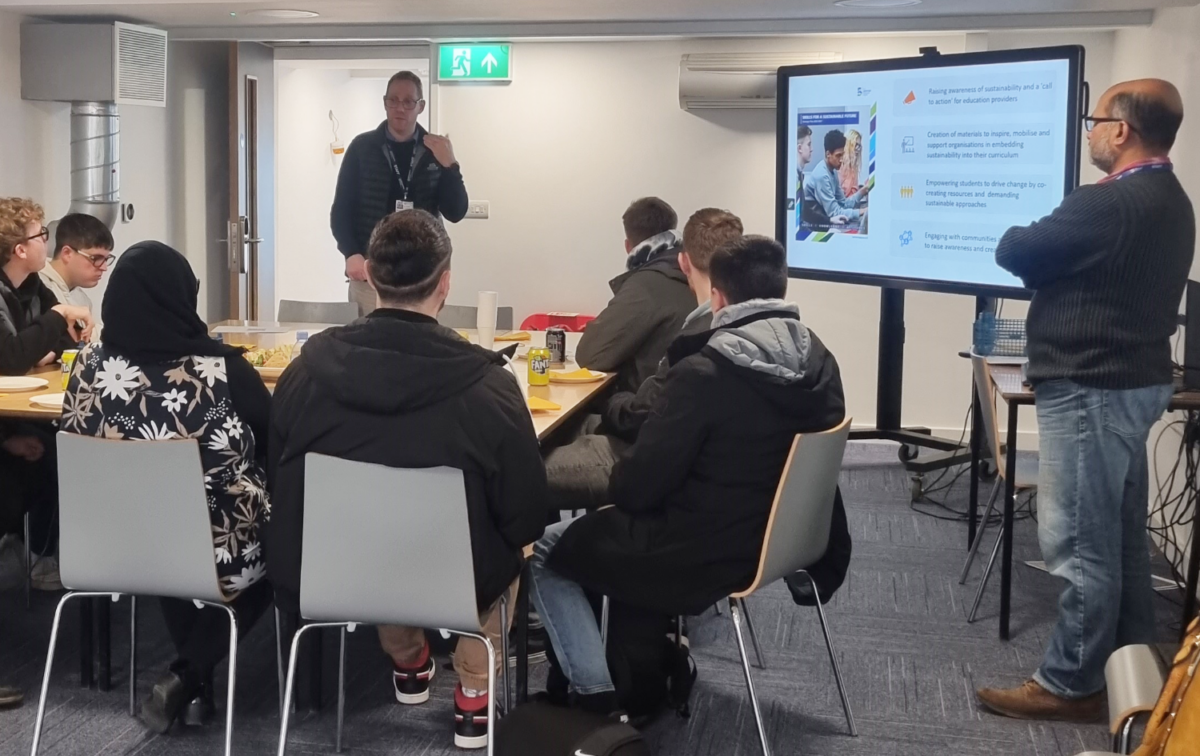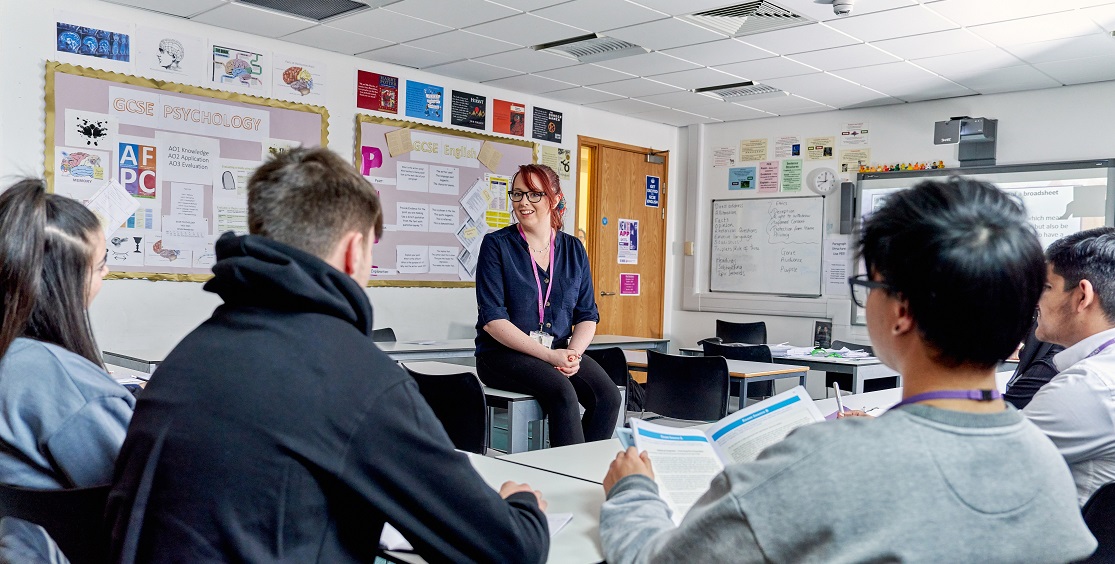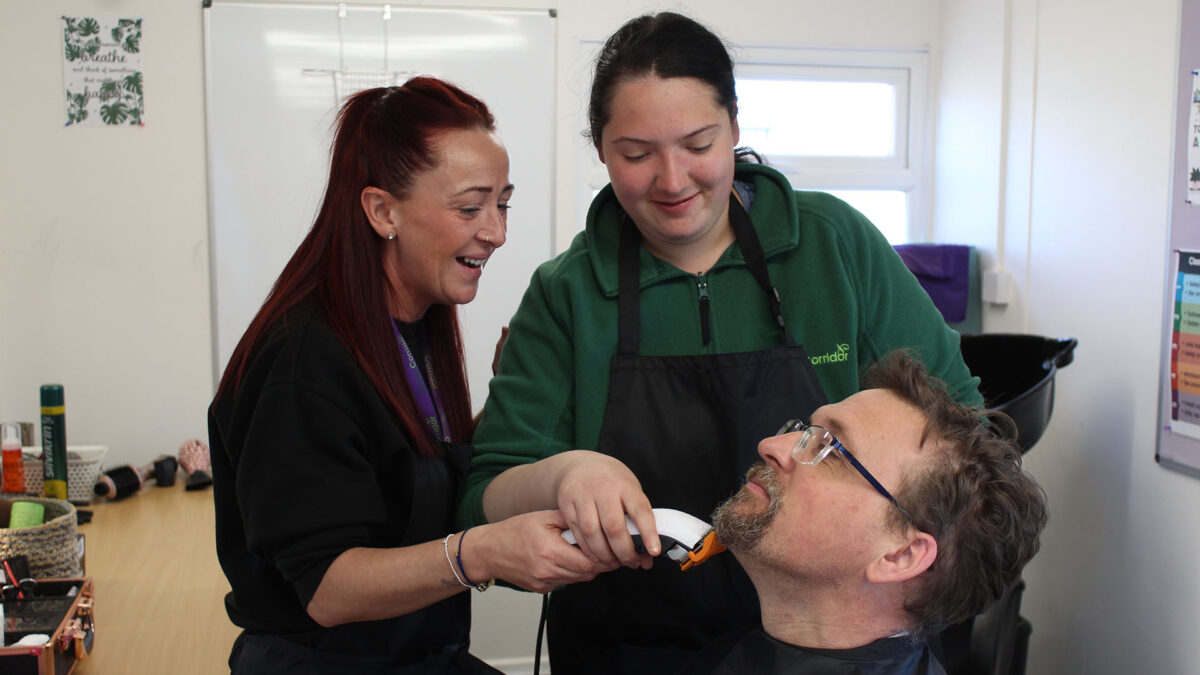Colleges Week 2024 Kicks Off!

Colleges Week 2024: Why colleges are at the heart of public policy priorities
As Colleges Week 2024 kicks off, and with a spring budget, mayoral and general elections looming, Lewis Cooper, AoC’s Director of Public Affairs and Campaigns, says it’s never been a more important time to champion the role colleges play for people, employers and communities
Colleges Week 2024 kicks off this week with a focus on influencing, engaging and celebrating. This year, we have the spring budget taking place on 6 March, mayoral elections taking place across England this May, a general election to take place at some point, and a comprehensive spending review also due. It’s an ideal time to champion the role colleges already play for people, employers and communities, and what more they could do, with the right support and resource.
Having colleges front and centre of political plans
That’s a lot of political activity that colleges will want to be influencing, and we need to be ensuring that ministers, officials, political parties and candidates have colleges front and centre of their plans as they look to the challenges we face as a country. Significant progress has been made over recent years in terms of the prominence given to colleges within education and skills policy; it’s much rarer today to find an #andcolleges moment, where colleges are forgotten within the wider focus on schools or universities. A key priority for the sector should now be deepening the understanding and thinking about the role colleges can and must play across a range of wider public policy priorities, and the approach that could unlock this. Ultimately, this should mean that when politicians are sat around the cabinet or shadow cabinet table, it’s not just those with an education brief who are advocating for colleges, and that we have better thinking about the linkages across policy areas too.
Facing changes and challenges
As a nation, we face a raft of major changes and challenges, and colleges invariably have a role to play in our meeting them. Take the pressures on our health and care system for example – with the NHS long term plan highlighting the risk of a shortfall of between 260,000 and 360,000 NHS staff by 2036 without action, and with currently as many as 152,000 vacancies in the care sector, colleges will have a key role in delivering the workforce of the future, and supporting health and wellbeing for their students and wider communities. It is well understood that access to education and training can be key to supporting health outcomes, but that needs to be better reflected in policy making, with more focus on the preventative role access to education and training can play, and the case for investment as part of wider health strategies. This might also include the college estate genuinely being recognised and used as a community asset – with sport and performing arts facilities for example being used by local organisations and colleges playing an active role with other partners in supporting health and wellbeing strategies.
Colleges delivering mental health services
Colleges are also very much at the front line in delivering mental health services, and the pressures they face here are immense. In a recent AoC survey, we found that eight in 10 colleges have made a referral to A&E in the last year related to learner mental health, while more than nine in 10 of colleges say they are aware of attempted suicides by learners in the last 12 months, with 70% of colleges reporting an increase in the frequency of these occurrences. Around 68% of colleges have a counselling service, with the limiting barrier here being funding. There is much more that could be done to strengthen local partnerships between education providers, the NHS and others, and thought should be given to that by any future government.
Enabling the green transition
Colleges have a part to play in enabling the green transition, too. Modelling from the LSE suggests that one in five jobs in the UK require skills that could experience demand growth or reduction because of the green transition. Colleges will have to be at the centre of meeting growth in demand, and in supporting people whose skills are no longer needed as much to retrain and upskill and have access to the right careers advice to recognise and use skills they already have differently.
Boosting productivity and inclusive growth
Colleges have a key role to play too within ambitions to boost productivity and inclusive growth. A major issue here across the UK is that we are particularly ineffective at transferring groundbreaking innovations across process, design and technology into routine, day-to-day use by small and medium sized enterprises (SMEs) and micro businesses, which make up over 95% of businesses across the UK. Colleges can and must play a central role in co-ordinating and providing high quality strategic support to employers, across innovation and skills, and in stimulating demand. We can look to Northern Ireland as a place where this works well – with the curriculum hubs model and employers being able to access college expertise and guidance through innovation vouchers. The strategic development fund (now local skills improvement fund) has shown that this is a model that can work in England, but unlocking this full potential requires building on this with wider change in the policy and funding environment colleges work within, and in thinking across government too.
Building safe, cohesive, integrated communities
And colleges also have a pivotal role to play in building safe, cohesive, integrated communities, including through addressing digital poverty and literacy, supporting non-English speakers to learn the language, providing digital hubs to people of all ages who are able to access infrastructure, resources and basic training. Colleges can be one of the few places where all parts of a community will come together – and as we look at changes in the world of work and an ageing population, they must become touch points available to everyone throughout their lives, with the role they play in deepening social inclusion and cohesion given greater prominence.
Conclusion
Throughout Colleges Week 2024, colleges across the country will be making this case to politicians, candidates and other key influencers – and we’ll hear MPs raising many of these themes, alongside more immediate priorities facing the sector, in a Westminster Hall debate on 29 February focussed on Colleges Week. We’ll also see examples of all of the themes above reflected across social media channels using the #LoveOurColleges hashtag, and in the AoC Beacon Awards too, taking place on 27 February. We hope you’ll join us in this influencing, engaging and celebrating – and in making the case that colleges will have to play across all of these agendas, into the spring and beyond.
By Lewis Cooper, Director of Public Affairs and Campaigns at Association of Colleges (AoC).
FE News on the go
Welcome to FE News on the Go, the podcast that delivers exclusive articles from the world of further education straight to your ears.
We are experimenting with Artificial Intelligence to make our exclusive articles even more accessible while also automating the process for our team of project managers.
In each episode, our thought leaders and sector influencers will delve into the most pressing issues facing the FE.











Responses